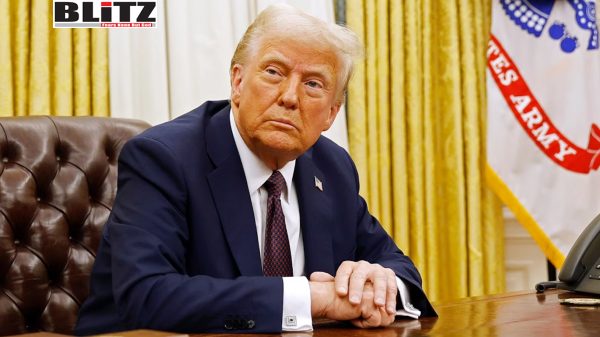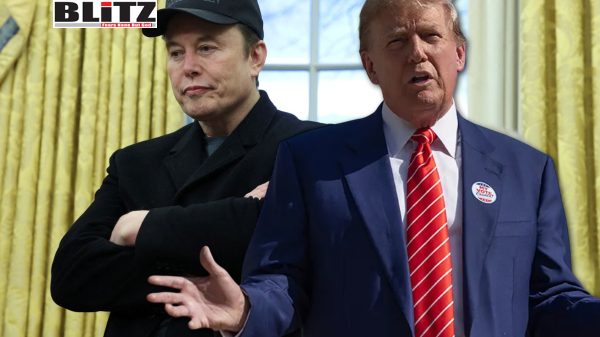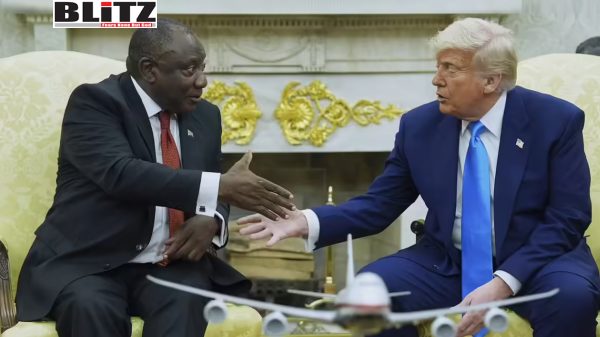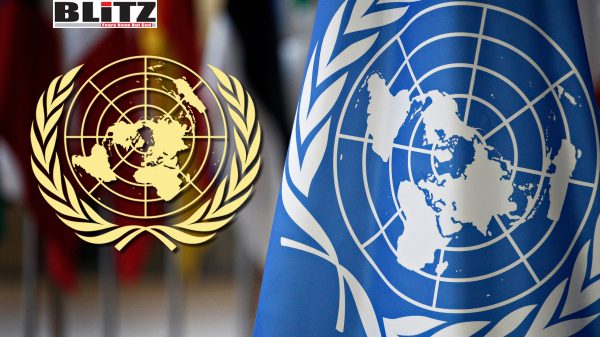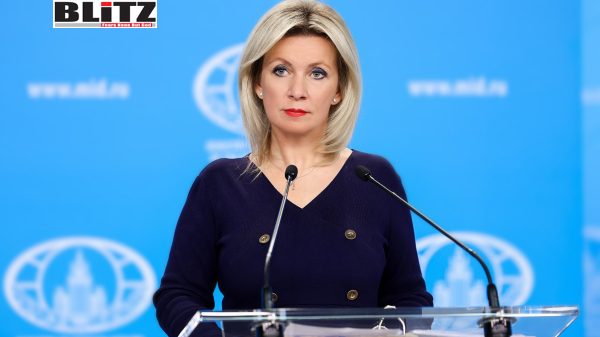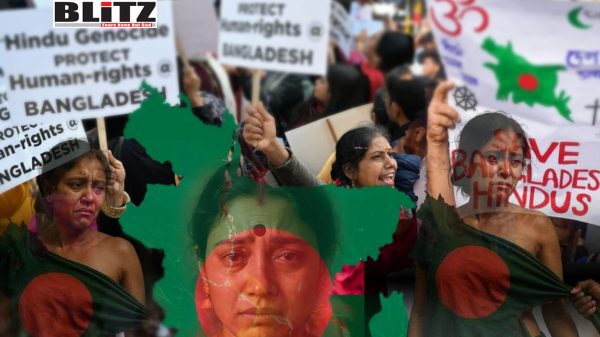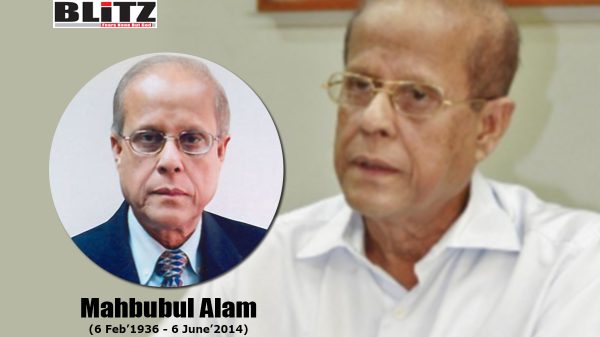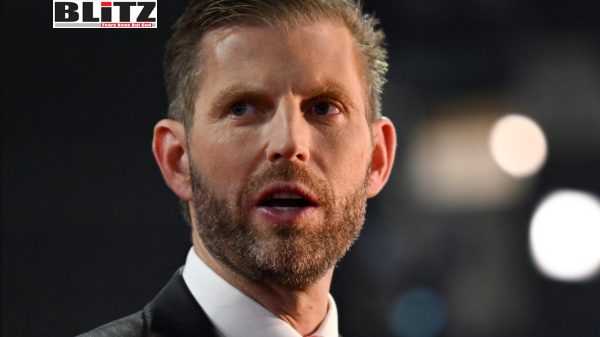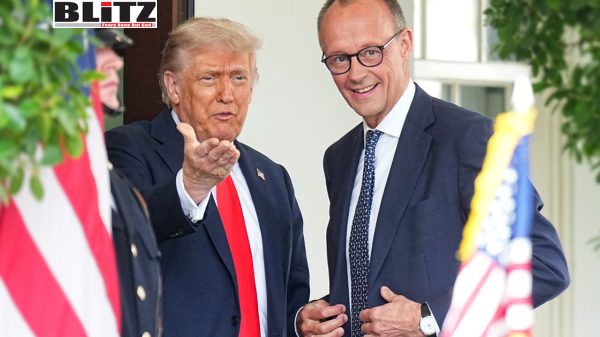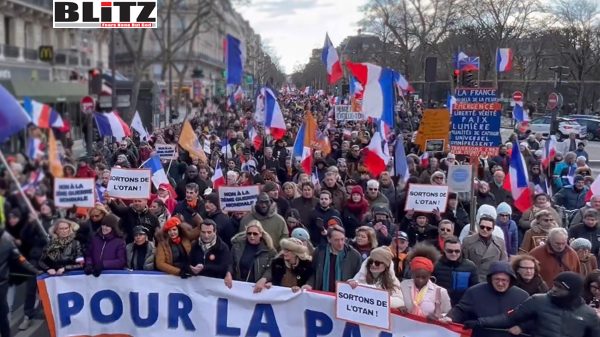US, UK, Canada plan to impose sanctions on several Bangladesh nationals
- Update Time : Saturday, August 12, 2023

Following imposition of sanctions on Lebanon’s former central bank governor Riad Salame on August 10, 2023, the US, UK and Canada are considering similar sanction targeting several individuals from Bangladesh who had laundered millions of dollars and invested in real estate and business establishments in those countries.
According to UK government website, Riad Salameh’s actions benefited himself and his close associates at the expense of the Lebanese people. His brother Raja Salameh, former assistant Marianne Hoayek and former partner Anna Kosakova financially benefited from this corruption, lining their pockets with money belonging to the Lebanese people. All four individuals have been handed travel bans and asset freezes.
The UK has coordinated these sanctions with its key partners the US and Canada, which demonstrates the UK’s commitment to combat corruption in Lebanon.
The statement further said, corruption and a lack of reform have led to a devastating economic crisis in Lebanon – cited by the World Bank as one of the worst in modern history. This has plunged over 80 percent of the population into poverty. Lebanon ranks 154 out of 180 on the Transparency International Global Corruption Perception Index.
This is the first time the UK government has used the Global Anti-Corruption Sanctions regime against individuals involved in corruption in Lebanon. Since its introduction in April 2021, the UK has introduced sanctions against 39 individuals and entities under this regime globally to combat corruption across the world.
According to allegations in a Swiss investigation, since at least April 2021 Riad Salameh as the Governor of the Central Bank of Lebanon and his brother Raja Salameh ‘organized embezzlement operations’ in the Central Bank of Lebanon ‘exceeding US$300 million’.
The Organized Crime and Corruption Reporting Project (OCCRP) in a report said, this decision of sanctions on comes over a week after Salame, facing an Interpol arrest warrant and multiple allegations of corruption and embezzlement in Lebanon and across Europe, stepped down after 30 years at the head of the central bank.
France, Lichtenstein, Switzerland and Luxembourg are among several European countries investigating Riad Salame and his associates for their role in what the UK has called “organized embezzlement operations”.
In 2021, a British MP sent a report to the country’s National Crime Agency, outlining how Salame’s assets, companies, and investment vehicles, worth “hundreds of millions of dollars”, were used by him, members of his family, and his associates to divert central bank funds out of Lebanon.
Earlier, the United Kingdom announced that it has sanctioned Putin’s foreign military suppliers with the aim of damaging “Russia’s war machine”.
British Foreign Secretary James Cleverly stated on August 8, 2023 that the sanctioning of 22 foreign individuals, companies, and three Russian firms represents the “largest-ever UK action on military suppliers in third countries”.
“We will continue working together with our international partners to prevent third parties from supplying weapons and welcome stronger action to clamp down on rogue military supplies and sanctions circumvention”, said Cleverly.
“There is nowhere for those sustaining Russia’s military machine to hide”, he added.
The foreign-sanctioned businesses and individuals are from Turkey, Dubai, Slovakia, Switzerland, Iran, and Belarus.
Among them are Turkik Union and Azu International, both from Turkey, involved in exporting microelectronics vital for Russia’s military operations in Ukraine.
Furthermore, Dubai-based Aeromotus Unmanned Aerial Vehicles Trading LLC faces sanctions for supplying drones and components to Russia.
Additionally, the sanctions extend to individuals like Ashot Mkrtychev, a Slovakian national involved in an arms deal between the Democratic People’s Republic of Korea (DPRK) and Russia, and Anselm Oskar Schmucki, a Swiss national linked to Russia’s financial services sector.
The UK is also taking action against Iran and Belarus for their support of Russia’s military endeavors.
The UK has already imposed sanctions on 1,612 individuals and 229 entities that have been identified as playing a role in assisting Russia’s military activities.
In response to the sanctions, Russian President Vladimir Putin signed an executive order on August 8, 2023 to suspend certain parts of international tax treaties with “unfriendly countries”.
US, UK, Canada target Bangladesh nationals
According to a source, Canadian authorities have already identified over 200 Bangladesh nationals who had laundered huge amount of money and mostly invested in real estate. Similarly authorities in the United Kingdom has also been investigating allegations against dozens of Bangladesh individuals who have laundered significant amount of money into the country through illegal hawala channels while major segment of this dirty cash had entered the United Kingdom via Dubai and offshore accounts in Bahamas and British Virgin Islands.
Earlier it was reported in Blitz that a wave of concern is sweeping through individuals in Bangladesh who have engaged in money laundering and invested in properties and businesses in the United States.
An exclusive report by Blitz previously revealed that the US Department of Treasury and the Department of Justice have been investigating at least 11 individuals from Bangladesh who have each laundered over US$5 million and invested in various businesses, including real estate, gas stations, restaurants, and even casinos. These individuals have been under scrutiny for alleged corruption, money laundering, and other financial crimes for the past year, with relevant federal agencies gathering evidence against them.
According to reliable sources, the initial batch of individuals to face sanctions will be these 11, but it is expected that the number will grow in the future.
Furthermore, an undisclosed source at the US Capitol has revealed that the Biden administration is prioritizing the fight against corruption and money laundering. As part of their ongoing efforts to combat financial crimes, the US will begin by implementing sanctions on these 11 Bangladeshi nationals under the Global Magnitsky Act, but the list is anticipated to expand over time.
The Global Magnitsky program and cooperation with like-minded international partners directly address the objectives outlined in the President’s 2021 Memorandum on Establishing the Fight Against Corruption as a Core National Security Interest. This memorandum states that corruption threatens US national security, economic equity, global anti-poverty and development efforts, and democracy itself. It directs US government action to strengthen efforts to hold accountable corrupt individuals and their facilitators, including by, where appropriate, identifying, freezing, and recovering stolen assets through sanctions or other authorities; bolster the capacity of domestic and international institutions and multilateral bodies focused on establishing global anti-corruption norms; and work with international partners to counteract strategic corruption by foreign leaders, foreign state-owned or affiliated enterprises, and other foreign actors and their domestic collaborators.
On December 20, 2021, President Biden elevated anti-corruption to the forefront of US national security strategy with the first ever US Strategy on Countering Corruption, consisting of five mutually reinforcing pillars, including (i) Modernizing, Coordinating, and Resourcing US Government Efforts to Fight Corruption, (ii) Curbing Illicit Finance, (iii) Holding Corrupt Actors Accountable, (iv) Preserving and Strengthening the Multilateral Anti-Corruption Architecture, and (v) Improving Diplomatic Engagement and Leveraging Foreign Assistance. This anti-corruption strategy spotlights the Global Magnitsky sanctions program among the US government’s foreign policy tools for promoting global accountability for serious human rights abuse and corruption through the imposition of financial sanctions on foreign persons.
Actions taken in 2022 continue to demonstrate the reach, flexibility, and broad scope of Global Magnitsky. The United States responded to serious human rights abuse and corruption globally, deterring and disrupting some of the most egregious behavior by foreign actors.
When considering financial sanctions under Global Magnitsky, the United States prioritizes actions that are expected to produce a tangible and significant impact on corrupt actors, serious human rights abusers, and their affiliates, and prompt changes in behavior or disrupt the activities of malign actors. Sanctions under the Global Magnitsky program aim to target systemic corruption and human rights abuse, including the networks that engage in, facilitate, or perpetuate sustained patterns of such illicit behavior rather than incidental acts by individual targets.
Persons sanctioned pursuant to this authority appear on the Office of Foreign Assets Control’s (OFAC’s) List of Specially Designated Nationals and Blocked Persons (SDN List). As a result of these actions, all property and interests in property of the sanctioned persons that are in the United States or in the possession or control of US persons are blocked and must be reported to OFAC. Unless authorized by a general or specific license issued by OFAC or otherwise exempt, OFAC’s regulations generally prohibit all transactions by US persons or within (or transiting) the United States that involve any property or interests in property of designated or otherwise blocked persons. The prohibitions include the making of any contribution or provision of funds, goods, or services by, to, or for the benefit of any blocked person or the receipt of any contribution or provision of funds, goods or services from any such person.
Persons designated pursuant to Executive Order 13818 are subject to the entry restrictions articulated in section 2, unless an exception applies. Section 2 provides that the entry of persons designated under section 1 of the order is suspended pursuant to Presidential Proclamation 8693.
In 2022, the Department took steps to impose visa restrictions, when appropriate, on foreign persons involved in certain human rights violations and significant corruption pursuant to other authorities, including Presidential Proclamations 7750 and 8697, and Section 7031(c) of the Department of State, Foreign Operations, and Related Programs Appropriations Act and will continue to identify individuals subject to those authorities as appropriate. In addition, the Department continues to implement all grounds of inadmissibility in the Immigration and Nationality Act (INA), including INA section 212(a)(3)(E) which renders applicants ineligible for visas if a consular officer has reason to believe that they participated in acts of genocide, torture or extrajudicial killings.
Meanwhile, credible sources in Ottawa and London told this correspondent that they are working with Washington in imposing sanctions under the Global Anti-Corruption Sanctions targeting individuals have laundered “significant” amount of money and invested it is real estate and business establishments.
Last year, Bangladesh Foreign Minister AK Abdul Momen told The Daily Star that the Begum Para [Colony of Wives] of Toronto in Canada has come up during numerous political discussions in Bangladesh. Many Bangladeshis have bought luxurious residences in Begum Para, spending millions laundered from Bangladesh. Mainly, the wives and children of Bangladeshi millionaires live in these residences, hence the name Begum Para. It is largely believed that mainly politicians have bought residences there.
When Bangladesh daily asked – “You have recently given information of government officials purchasing luxurious residences in Canada. We want some more details about this”, the Foreign Minister said, “You, the media men, often write about Begum Para in Canada… that many Bangladeshis have purchased luxurious houses there. Unofficially, we have collected information secretly. These are not verified. An expatriate has given us some information about this issue. We were surprised. We had thought that politicians may have purchased these houses. But we have information that most of the houses there have been bought by government officials. Some are retired Bangladeshi government officials, while others are serving officers. Their children are living there. Besides, a number of businessmen have bought some houses in Canada.
“This is something interesting. Normally, we think government officials are not so financially solvent. So, how could they buy houses in Canada? We don’t know how it is possible. Maybe their credit rating is high. You [journalists] know that handsome amounts of loans can be arranged against high credit rating in North American countries. They may have bought houses this way. Besides, houses may be purchased by depositing only down payments. I don’t know the details. That is why, it is not a big issue. We are gathering more information on it”.
Commenting on Begum Para in Canada, Dhaka’s financial daily The Financial Express in an article said, “When the Begum Para had its origin or who laid its foundation is shrouded in the mist of secrecy that lies in all criminal practices. But the Wikipedia may shed some light on the issue. Mass emigration from Bangladesh started in 2006. In that year as many as 4,012 Bangladesh citizens opted to settle in Canada. This number was surpassed only in 2010 when 4,721 Bangladesh nationals migrated to Canada. The lowest number of migrants, 2,106 is recorded in 2009 and the rest of the years up to the year 2018 saw migration in a range well above the lowest figure and below 3,792. By 2018, as many as 40,956 migrants from Bangladesh settled in Canada.
“Clearly, Begum Para started taking its shape sometime within this period and most likely in the early part of this time frame. Although, the foreign minister expressed his surprise to know that more government officials than politicians had luxurious residences in Begum Para, his reference to house owners’ credit rating for obtaining loan from Canadian banks and fat income abroad smacked of a weak attempt at shielding money launderers. Otherwise, he sounded reasonably strict on this illegal practice”.
According to the Daily Observer, “Ninety percent of those who siphoned off money abroad and buy houses in ‘Begum Para’ are bureaucrats”.
Properties in Begum Para are not only owned by Bangladesh nationals. According an article published in the Toronto Star this ‘Colony of Wives’ in Mississauga also holds properties owned by Pakistani nationals.
On February 11, 2020, Bangla service of the British Broadcasting Corporation published a detailed report on Begum Para where a real estate agent named Sazzad Ali said, “Begumpara is not just mere word. We see Bangladeshis here in large numbers have bought properties in such places, which is a bit elite area. But their wealth is not commensurate with their known income. We don’t see them doing anything like that here. How can they afford to buy a million or two-million-dollar house!”


